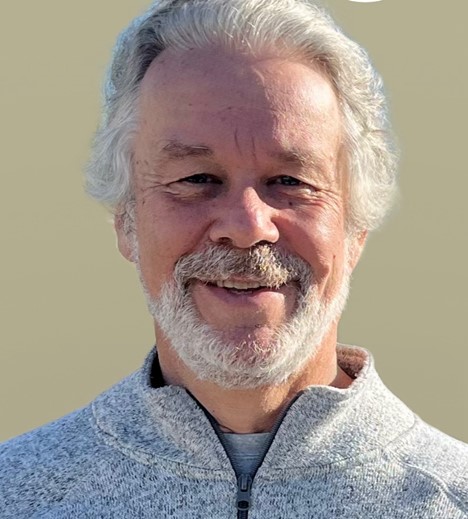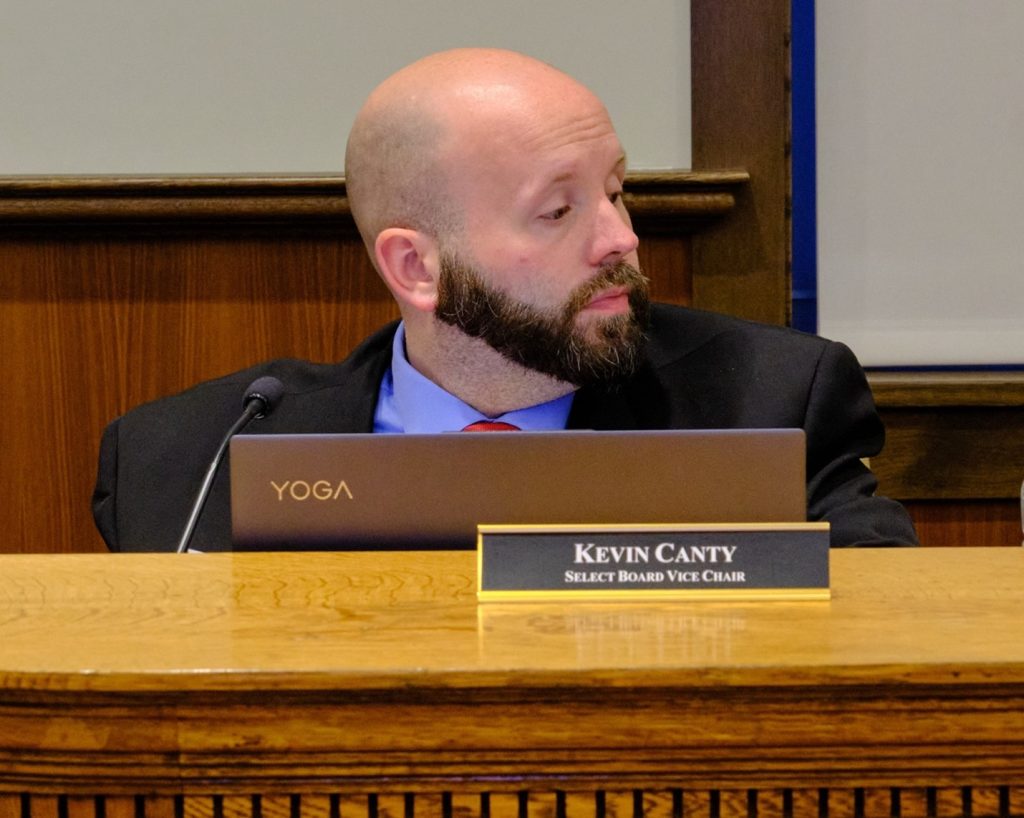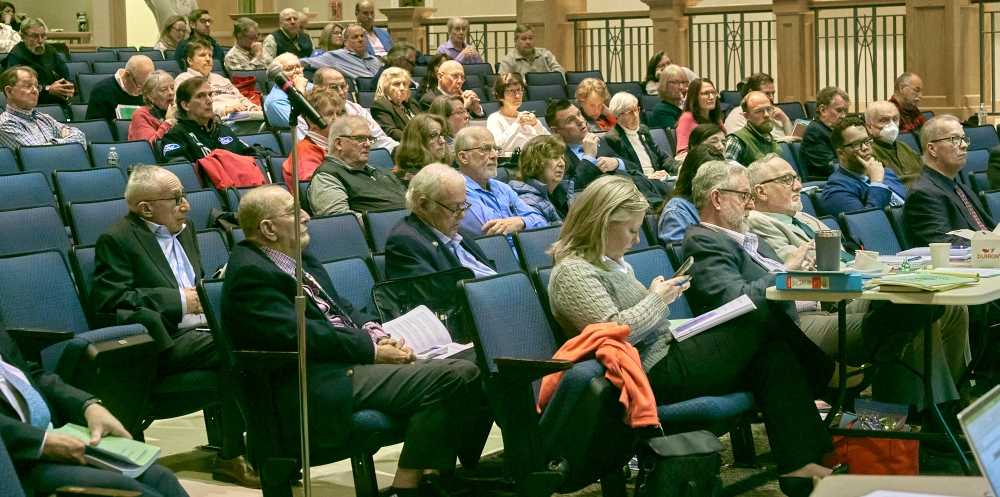The anemic 13 percent turnout for last Saturday’s town election was no outlier.
While this year’s annual election largely lacked drama – there was just one candidate for Select Board, arguably the town’s most powerful committee – it’s probably not the prime reason why people didn’t bother to vote. Most years since 2013 – the first time election results were posted on the town website – turnout in annual May townwide vote has hovered around 12 percent, meaning that nearly nine out of every 10 registered voters don’t cast ballots. That sorry number doesn’t account for the number of voting-age residents who aren’t even registered.
And if you think May is a bad time to hold an election, try August. In 2021, the turnout for the special election for Select Board that month was a dismal 10 percent. That was the year that Charlie Bletzer was elected to the board.
Blezter, however, seems resigned to the lack of participation.
“It’s always been a low turnout for the local election,” he said.
The best turnout in recent years was in 2022, when the annual town election drew a whopping 16 percent of voters. That was the year when – in addition to electing candidates for town offices – voters weighed in on three nonbinding ballot questions related to their preferences for Plymouth’s form of government. There was also a nonbinding question on whether to approve a horse racetrack in Plymouth.
“Unless you have some issue accompanying the elections, such as the nip ban, you’re not bringing out new voters,” said Town Moderator Steve Triffletti, referring to the January vote to overturn a Town Meeting ban on the sale of nips containers of alcohol. It drew 15 percent of voters to the polls.
In 2023, a binding vote on whether to change the town’s charter was on the ballot, drawing 15 percent of registered voters. Some say the turnout would have been much higher if voters were given more options – such as the ability to vote for mayoral form of government.
So what can be done about indifference of Plymouth’s voters?
Triffletti suggests moving local elections to the fall.
“One of the questions we’ve discussed in the town is to change the date of the election, and perhaps have it piggyback onto state or national elections,” said Triffletti.
But that would be complicated, requiring local candidates to have all their signatures in to make the ballot in time for the state deadline (the state prints ballots four weeks before the election), according to Town Clerk Kelly McElreath. Currently, local candidates have more time to file papers and to withdraw their candidacies. Or it would require two separate ballots, one local and one state, she said.
McElreath said Plymouth could also follow the lead of Massachusetts cities and have two-year terms of office, with people voting only in odd years in the fall. Still, voter turnout for local elections is not necessarily much higher in Massachusetts cities than it is in towns. In last year’s municipal election in Boston, for example, it was just 19 percent.

Frank Mand, who lost to Tim Bennett in a race for Planning Board this year, said residents are intimidated by town government because they do not understand it.
“People are pretty much out of the loop when it comes to how the process works,” he said. He suggested a town fair where members of all the boards and committees could explain what they do.
Mand said elected officials’ resistance to letting public comments play out in board meetings turns people off to town government.
“You’ve got to go out of your way to reach out and bring people into the discussion, even though it may not be pleasant for you to have people show up at these meetings as a board member,” he said. “[Residents] have to feel they have the opportunity to participate, otherwise they’re just going to be cynical about the process.”
Bill Abbott, chair of the now disbanded Charter Commission, has a contrarian take on what the chronically low turnouts indicate.
“I think a very low turnout shows that people are happy, not unhappy,” he said. “They’re basically complacent and they’re pleased (with) where things are going.”
As for the lack of competitive races, Bletzer said money is an obstacle.
“It costs money to run,” he said.
Bletzer reported spending $24,812 during his 2021 campaign, while his opponents, Scott Vecchi, Steve Bolotin, and Vedna Heywood reported spending a combined $26,848.
“To get your message out, you need to have signs,” Bletzer said. “Also, mailings are very helpful.”
But Mand’s narrow loss to Bennett shows that money is not always required to run a competitive race. Bennett reported raising $13,800 and spending $12,263 as of eight days before the election. Mand garnered 2,967 votes to Bennett’s 3,287 while spending a mere $112.
Newly elected Select Board member David Golden reported raising $15,118 and spending $5,986 as of eight days before the election, even though he was the only candidate on the ballot. Asked by email to comment on why so few people vote, Golden’s response instead focused on his campaign and election to office.
“I spent time with residents and business owners to hear their concerns and hopes for the town,” he wrote. “I attended every candidate forum to which I was invited. And I was present as a participant, guest, or observer at dozens of public meetings and special events over the last several months. Now that I’ve been elected, I look forward to continuing to listen to my constituents and representing their needs.”
Another factor in the poor turnouts may have nothing to do with Plymouth directly, according to some observers.
The negative tone of national politics is turning people off running, said Triffletti.
“For the past eight years, the national discourse has changed,” he said. “We’ve seen a lot less civility at the national level, and people have to ask do I want to be involved if it’s not pleasant, enjoyable, or fulfilling because it’s filled with rancor and angry speech.”
Bletzer, too, believes the increasing volume of national politics drowns out interest in local elections.
“There’s so much going on with Trump-Biden that people pay more attention to this than they do to the local elections,” he said. “People don’t understand how important these local elections are. It is disappointing.”
Community Preservation Committee chair Bill Keohan, who served as chair of the Plymouth Democratic Town Committee from 2007 to 2023 and was elected to the State Democratic Committee this year, said potential candidates are turned away by behavior at the local and national levels.
“To get the best and brightest to run for office, you’re going to have to attract them with a process that is respectful and tolerant, he said. “This idea of being angry towards someone who has a dissenting opinion has to stop.”
As a member of the State Democratic Committee, going around to different municipalities, Keohan noted, the lack of candidates is not endemic to Plymouth.
Triffletti, a lawyer, said the fear of losing the ability to represent clients before town boards has a negative impact on business people’s desire to run for office. He cited his own case, in which the Select Board banned him from representing clients before town boards after he represented Planning Board member Birgitta Kuehn in a disciplinary hearing before that board.
“I’m an example of a town official who for 32 years enjoyed special municipal employee status, where I was able to continue to practice law before other boards and committees other than Town Meeting, and a few months ago, that was stripped from me for reasons that I believe to have been political – namely, that I was providing representation to a town official who was in the center of some controversy that had political ramifications,” he said. “It is my belief that such action by the Select Board has a chilling effect on qualified active members of the community who might otherwise serve.”
The problem of disinterest extends beyond the town’s most visible boards. This year, beside there being only one candidate on the ballot for Select Board, Housing Authority, and Redevelopment Authority seats, there were five precincts in which fewer people ran for Town Meeting than there were open positions.

“We seem to consistently have fewer people running for Town Meeting than there are positions open overall, which is unfortunate,” said Select Board member Kevin Canty. “I think that younger generations are less engaged with the Town Meeting format of government than older generations.”
As to why only Golden was the only candidate on the ballot for Select Board, Canty ventured that it might have to do with the long hours, meager compensation, or both. Select Board members earn a stipend of $4,000 a year. The chair earns $4,500.
Abbott said the lack of candidates has something to do with the fact that the country has changed from the time when he first became active in public service, in the 1960s.
“Everybody wanted to do something for their country or the town,” he said, lamenting “the total change of attitude which we see and is reflected in Plymouth by people not stepping up to the plate to run for office. It’s something to do with our culture. There’s a feeling that we all had to return what the country had given us and give something back. I don’t see that now.”
Still, Keohan finds reason for optimism. Even if people are not running for office, he said, they are interested in participating in civic organizations.
“It’s coming from the generation born after 1945. They’re retired. They have an institutional knowledge. They are giving back to their communities.”
He said he sees it in involvement in the Plymouth Task Force to End Homelessness, the Plymouth Center for the Arts, The Spire Center for Performing Arts, and Pilgrim Hall Museum.
“We’re seeing these organizations strengthen because an older generation is retiring and they’re getting involved in their communities,” he said. “There’s a light out there that’s growing.”
But what happens after that generation is no longer as active remains an open – and concerning – question in a town that is quickly growing into a city.
Fred Thys can be reached at fred@plymouthindependent.org

